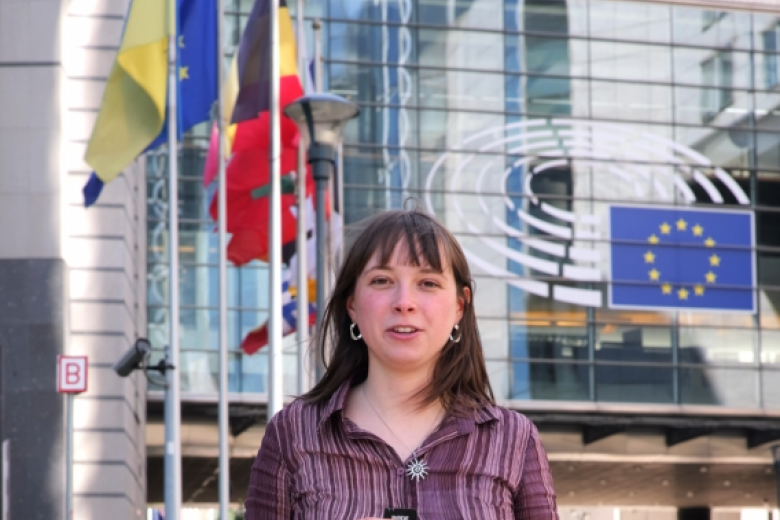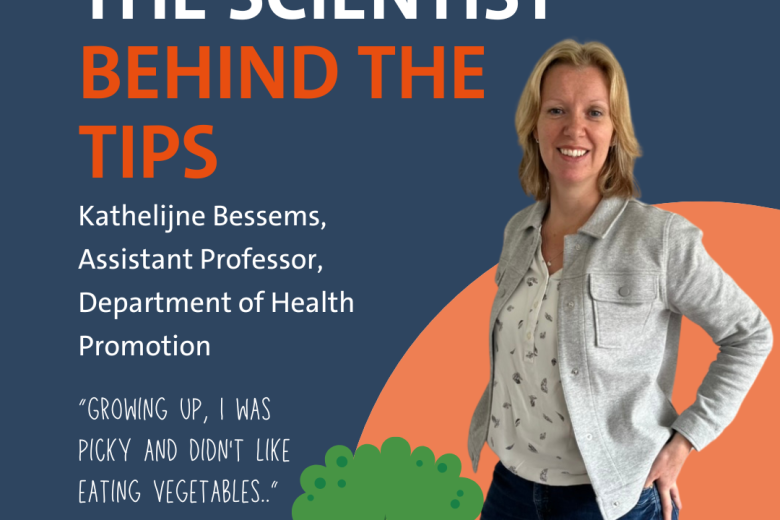Post-COVID economic recovery – a question of confidence
How quickly do you think things will return to normal? How you feel about this is more important than you might think! Since it’s crucial for policy-makers addressing immediate problems to understand what people think might happen, Peiran Jiao has conducted an online survey experiment into how the pandemic shock has influenced economic preferences and beliefs.
Right now, are you confident enough to go on holiday, or take out a loan to start a business or buy a Bluetooth-enabled waffle iron? The answer might depend on where you live. Peiran Jiao from UM’s School of Business and Economics (SBE) researches how experience influences decision-making. And there was really rather a lot to experience, these last couple of months.
Global citizens, community members, individuals
Jiao distinguishes experiences on the global, community and individual level. He takes the global experience to be very similar for everyone because, even though British and Italian newspapers in March seemed to report on completely different realities, the same numbers and statistics are available to everyone.
The second level refers to the perceived severity of the COVID-19 outbreak in the area people live and work in; this might vary significantly within countries. The individual experience is even more random, that is to say, e.g. even in a low-risk area, one could have suffered great personal bereavement. “My goal was to see how these experiences influence people’s preferences and beliefs.”
To shed light on the impact of catastrophic events on people’s economic reasoning and behaviour, Jiao has teamed up with Raymond Duch, from Nuffield College, University of Oxford. He had known Duch from his time as a postdoctoral researcher in Oxford. The Nuffield Centre for Experimental Social Sciences, which has satellite labs around the globe, has facilitated this survey with more than 3,000 respondents.
China, Chile, Italy
They have surveyed 100-150 participants from ten to fifteen subnational districts in each of three countries, China, Chile and Italy. The countries were chosen partially out of convenience, partially because the comparison is instructive: “China was the first country to suffer the outbreak and was already in the post-lockdown stage. Chile had, at that time, still relatively few cases, while Italy was at the height of the outbreak.”
Research assistants with relevant cultural and language expertise helped Jiao and team hone the selection. “We wanted areas that are close together but with varying infection rates, so people who are economically and socially similar. But there were, for example, sample areas in Chile, very close on the map but separated completely by a mountain range. There were a lot of factors to consider…”
“We measured economic preferences, e.g. risk aversion and whether beliefs in the domain of health and economics had been updated. What we also noticed was that people had a pretty accurate perception of the severity of the situation in their area, “Jiao notes. “They estimated the severity of infection in their area very well.” He also found out that people in heavily affected areas were more willing to comply with containment measures.
Surprising results – for economists
“We also asked people to forecast the likelihood of COVID-19 flaring up again globally, in their area, or affecting them personally.” There, in the health domain, the pandemic seems to have had the most significant impact when it comes to beliefs. “People in more heavily affected areas, especially in China, are more likely to expect a second wave or to assume they might get infected themselves.”
“The more traumatic your experience, the more likely you think you’ll contract COVID-19 and the risk averse you tend to be.” That sounds somewhat self-evident but, as Jiao explains, “economic theory would predict that, if everyone has the same information, such as WHO statistics, everyone would make the same predictions. But preferences are updated not only because of information but also experience.”
“In heavily affected areas, we also noticed social preferences change: people became more other-regarding. They realise first-hand that this event cannot dealt with without others’ help, that institutions need donations, that developing a vaccine requires a lot of cooperation and so on.” Interestingly, the opposite is true of China. Jiao speculates a recent corruption scandal involving the Red Cross might be the explanation.
Different perceptions, different reactions
There were other interesting differences by country. “In Chile, people who had seen many infections around them were more likely to think they might get infected. In Italy, it was the opposite. This might be due to the gambler’s fallacy, the belief that the probability of an event decreases if it has happened frequently in the past. After all, we sampled Italy at the peak of the pandemic…”
Jiao himself was initially very worried and intimidated by the severity and universality of the quarantine procedures in China. “That was also borne out by our study: people experienced a great sense of urgency and fear surrounding the pandemic – possibly also because they were the first and couldn’t rely on any precedents.” His experience in the Netherlands was very different.
“I would ask my colleagues why they’re not more concerned by the Chinese experience.” In general, though, he appreciates the Netherlands’ moderate approach, which he sees as somewhere between the overly oppressive optics of the Chinese approach and the UK, whose laissez-faire policies might be regarded as almost lackadaisical.
“We’ve had a pretty good trajectory here, but without damaging confidence in economic recovery. In China, they only allowed businesses to reopen once there were zero infections; that created false perceptions about how threatening the situation actually was. That, in turn, depressed people’s confidence and belief in economic recovery, on the household as well as the national level.”
Jiao and the team are still analysing the data. They want to repeat the survey in a year to study the long-term effects and hope to expand it to include the US, India and other countries. Their findings will inform policy-making aimed at aiding economic recovery.
Also read
-
Europe Day
To celebrate Europe Day on 9 May, FASoS student Lisa travelled to Brussels to meet with five of our inspiring alumni who are currently shaping European policy and advocacy. In this video, they share why Europe Day matters, how it’s celebrated in Brussels, and what the idea of Europe means to them.
-
The Green Office Catalyses Circularity Projects’ Autonomy
This semester, the Green Office cultivated the untapped potential of the Community Garden and the Clothing Swap Room. We hope that these Circularity Projects will operate under autonomous, functional organisations by this time next year, with continued support from the Green Office and the SUM2030 team... -
Evidence-based health tips for students: the science of eating healthy
In the upcoming months, we’ll share tips on Instagram for our students on how to live a healthier life. Not just a random collection, but tips based on actual research happening at our faculty. The brains behind this idea are L ieve Vonken and Gido Metz, PhD candidates at CAPHRI, the Care and Public...